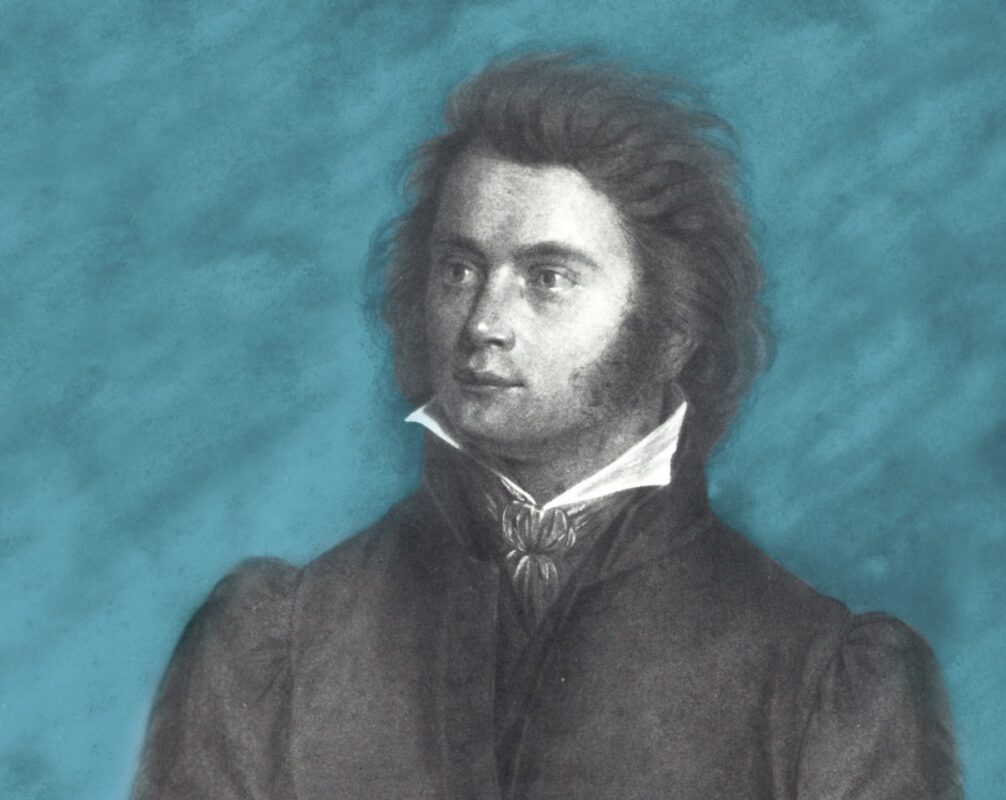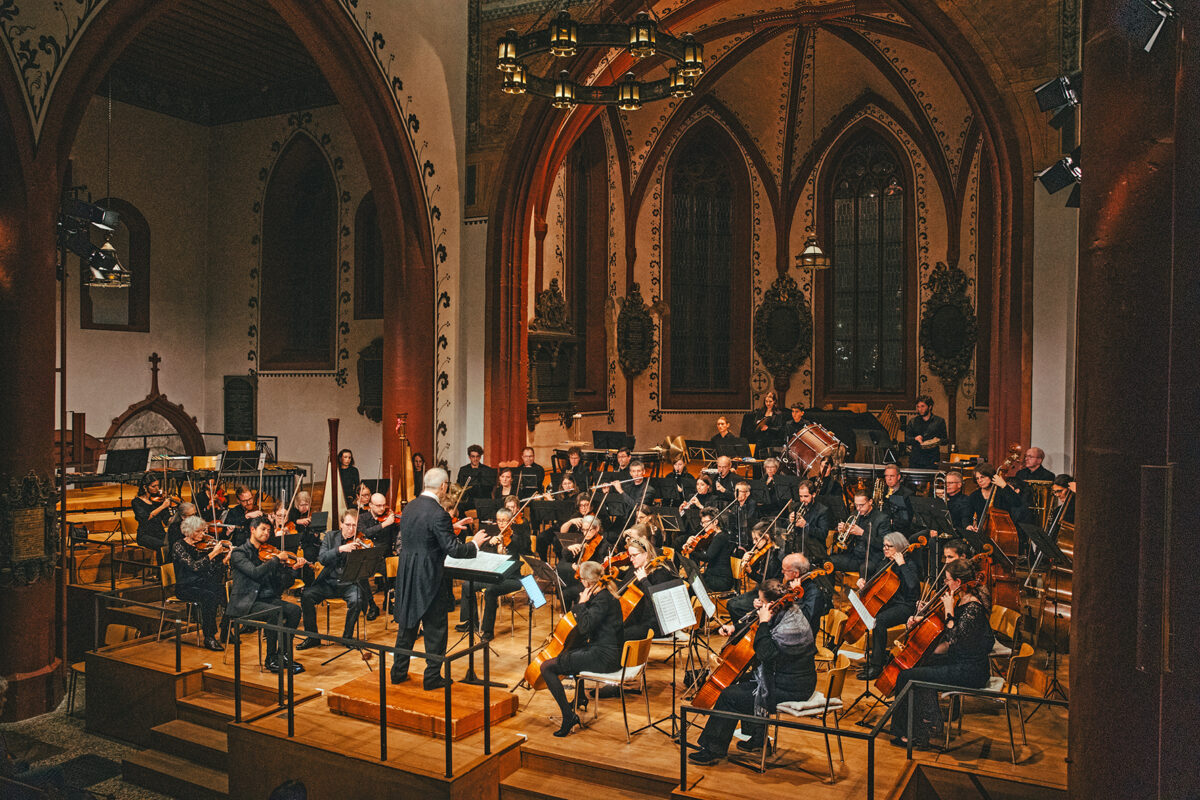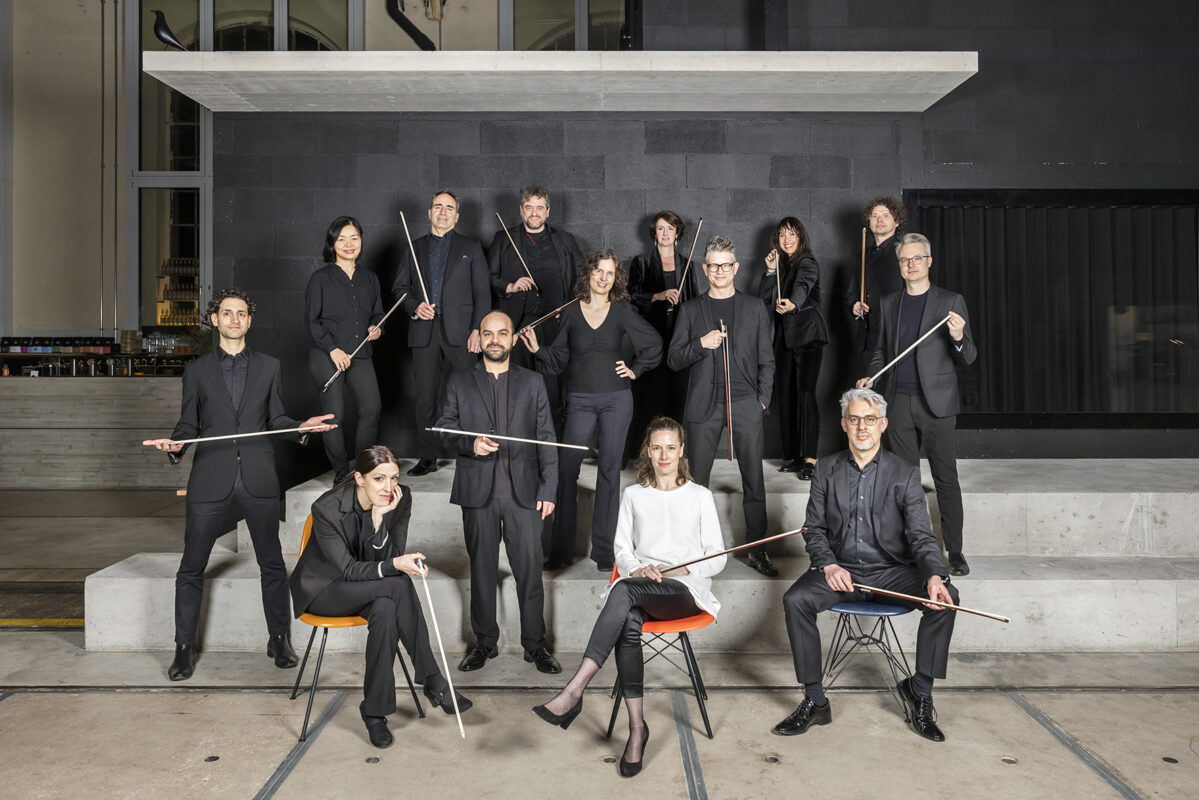Many thresholds crossed
Daniel Ott and Manos Tsangaris led the Munich Biennale for New Music Theater into a new era with verve. In symposia and performances, they set a number of Swiss accents and coined a new term for music theater with "OmU".
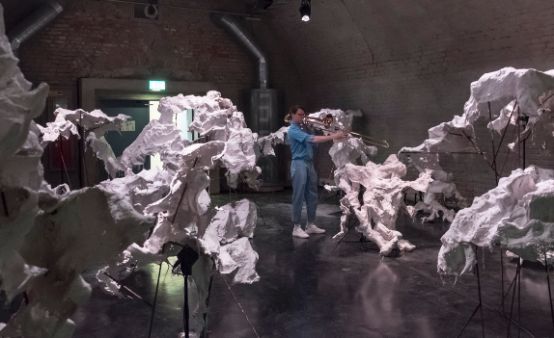
A pedestrian zone in the center of Munich. Two passers-by are bending attentively over a garbage can. Is there something to watch, hear or smell? Others walk past carelessly, others join them, while the first ones move away without exchanging words.
The video documentation as an integral part of the piece Staring at the Bin ("Anmülleimer anstarren", composition and concept Meriel Price) is symptomatic of a concept of music theater that Munich Biennale (May 28 to June 9, 2016) under the new directorship of composer duo Daniel Ott and Manos Tsangaris. The focus is on integrating the city and everyday life as well as opening up to interaction, strange occurrences and altered sound perception. According to the two artistic directors, "threshold crossers" are to be attracted and the Biennale opened up with performative sound interventions in the urban space, the consolidation of the festival and a doubling of the number of world premieres to 15 in 13 days. By including individual new venues away from the major venues, the team of artistic directors deliberately deviated from the programs of their predecessors Hans-Werner Henze and Peter Ruzicka.
Ott and Tsangaris seem to complement each other perfectly, as Daniel Ott, a Swiss national anchored in his adopted home of Berlin, brings with him many years of experience as director of the Rümlingen Festival for New Music, which specializes in musical dialogue with the environment (see interview in the Swiss Music Newspaper 6/2016, p. 6 ff.). Since his first music theater miniatures in the 1970s, Tsangaris, who teaches in Dresden, has devoted himself to radical statements on world references, new parameters of theatrical actions, the search for sounds and encounters with the audience.
The radical break with Munich tradition is nevertheless surprising and testifies to a genuine passion for the cause. The choice of the biennial title OmU - Original with subtitlesThe "film", which in the cinema is the decisive indicator for an unadulterated screening, is deliberately based on cinematic processes. He evokes numerous possibilities of how an original can be related to its transposition or realization, but also fragmentation, alienation or documentation. At the same time, he alludes to the "OmÜ" variant - original with surtitles - of common practice in opera.
Symposium with Swiss accents
What does the term "original" mean and what do new formats and strategies look like in today's music theater? Is the term "music theater" still appropriate at all and what relationship could this music theater have to other fields of contemporary art?
With a view to productions of the Biennale, but also on the basis of fundamental and further-reaching considerations, a dense symposium conceived by Jörn Peter Hiekel (Dresden/Zurich) and David Roesner (Munich) under the title OmU - Echo spaces and search movements in today's music theater to the discourse. The fact that Switzerland is evidently a fertile breeding ground for the musical-theatrical treatment of templates of all kinds was particularly evident at this event.
The two artistic directors playfully introduced the themes of originality, authorship and hierarchies, before subtitling and encouraging each other with "keep talking" and "keep playing" on instruments in a flowing transition between word and sound - Ott on the piano prepared with blind rivets and Tsangaris on the forest devil and flummi ball.
Roman Brotbeck (Bern/Basel) showed a way of dealing with the original by setting Robert Walser's texts to music. Only in the last twenty years has Walser often been set to music, especially in théâtre musical, which Brotbeck justified with an interest in biographical topoi. He exemplified the relationship between the style of Walser's texts and the methods of théâtre musical with works by Mischa Käser, Georges Aperghis, Helmut Oehring, Johannes Harneit, Ruedi Häusermann and Heinz Holliger.
David Roesner (Munich) presented Christoph Marthaler's The Unanswered Question (Basel 1997) as a key work for dealing with models. It uses Charles Ivesʼ epochal piece of the same name (1908), which addresses fundamental questions of music. Ruedi Häusermann's music theater A multitude of quiet whistles (Zurich 2011), which led to a staged concert in the box after a musicalized walk through the workshops of Zurich's Schiffbau, was read by Leo Dick (Bern) as a "composed memory work" (see Dick's article of the same name in: Transitions: New music theater - vocal art - staged musicStuttgarter Musikwissenschaftliche Schriften 4, edited by Andreas Meyer and Christina Richter-Ibáñez, Mainz 2016).
-
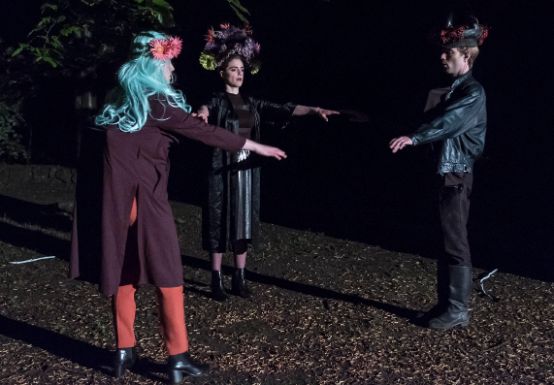
Phone Call to Hades. Photo: Munich Biennale, Franz Kimmel
Platforms and collaborations
The new Munich Biennale sees itself to a not inconsiderable extent as a forum for young artists. At international platforms, which initially took place in Munich in 2013 and later with partners in Bern, Rotterdam, Buenos Aires and Beijing, new teams were formed with selected young artists and new ways of working together were sought. The result was a variety of collaborative projects and formats, examples of which are presented here with the participation of Swiss artists.
In Phone Call to Hades with music by Zurich-based composer Cathy van Eck (Isabelle Kranabetter, dramaturgy; Blanka Radoczy, direction; Claudia Irro, costume) focused on the human voice. In a somewhat spooky, guided tour along secluded Isar meadows at a late night (and rainy) hour, the audience followed the paths of three classically trained singers. While their costumes evoked myths and legends, they first scurried through sections of forest, only to meet later in bizarre musical dialog miniatures in which bird-like vocal motifs, technical transformation and recorded voice samples intertwined. While the piece alludes to the uncertain localization of voices between this world and the hereafter, which was triggered by the phonograph in the 19th century, the boundaries between original and alienation actually became increasingly blurred, intensified by the visual ambiguity in the darkness of the night.
An hour-long sounding walk through seven nested underground rooms could be experienced in Mnemo/scene: Echoes (Stephanie Haensler, composition; Pauline Beaulieu, direction; Ariel Farace, text; Yvonne Leinfelder, stage). Memorable installations, reminiscent of arte povera (piles of pebbles, ephemeral sand writings), fragments of Dubuffet's figures or futuristic buildings, were interwoven with musical miniatures (as pre-memory fragments), sounded with text fragments or set in motion by a dancer. If the musicians and performers moved according to an unclear scheme, the audience decided for themselves where they wanted to be. Approximately in the middle of the piece, all participants gathered for a twenty-minute concert situation. While the reminiscence of a piano piece (op. 28/2) by Robert Schumann resounded in the music of the Swiss composer Stephanie Hänsler, an individual perception and later memory condensed in each of those present.
One step further in dealing with the original The Navidson Records - a music theater as an installationunder the artistic direction of Tassilo Tesche and Till Wyler von Ballmoos (Ole Hübner, Rosalba Quindici, Benedikt Schiefer: composition; Kristian Hverring: sound design). The six-hour performance took place in an intricate labyrinth with spherical sounds, lighting moods and self-observing video installations. The audience, who could stay as long as they wanted, were involved in the action right from the start. Divided into small groups, the audience had to find the entrance themselves - and smash a wall behind which cherub performers dressed in sand-colored baroque underwear fled in all directions, shrieking in reaction to the intruders.
While all the performers carried out Dadaistically repetitive actions (for example, Wyler von Ballmoos strummed the piano seemingly at random from time to time, partitions were constantly being pulled up and down or Leo Dick held a fictitious interview), the audience was asked to help themselves to drinks, take part in a puzzle or an oversized pink stuffed rabbit looked over their shoulders. The immersion in a disconcerting (nightmare) dream world was combined with a character of the unfinished and blurred reality and fiction. As a co-production with the Bern University of the Arts, the play will be performed again in Bern.
-

The Navidson Records. Photo: Munich Biennale, Franz Kimmel
Cinema in the head
In the double evening Sez Ner and Pub - Advertisements one actor or actress translated an original into an imaginary music theater in miniature format: Arno Camenisch impressed as a performer of his debut novel written in Rhaeto-Romanic and German Sez Ner with his noisy, melodious power of speech, which he performed in a fusion of gestures, facial expressions and body language, while Donatienne Michel-Dansac in George Aperghis' new piece Pub - Advertisements seduced the audience with her finely chiseled, mischievous performance. Camenisch's bizarre texts, brimming with black humor and depicting the harsh life in the Swiss mountains, were placed in front of the absurdities of the desires of an elegant urban consumer society, resulting in a highly amusing, yet thought-provoking panorama of today's living environments. A multi-layered fabric was created between notated original, visually powerful interpretation and imaginative cinema in the mind.
The evening, which was characterized by concentration, complexity, reduction, humour and lightness (especially as it was held on a classic peep-box stage in the Gasteig), turned out to be a very different kind of highlight within the festival. And with this production featuring just two people, the team of artistic directors, with a twinkle in their eye, defied the idea of confining contemporary music theater to a specific format.
What remains of OmU?
What most of the productions shown at the Biennale have in common is their experimental character, which includes the complete merging of levels and the overcoming of hierarchies of the participating authors and "disciplines", and in some cases also approaches to involving the audience.
Ott/Tsangaris' new biennial concept seemed to work, at least as far as the audience was concerned, as many of the performances were completely sold out, even in the unusual venues. The "threshold crossers" were there, and they were curious and communicative.
Looking back, the initially somewhat surprising motto OmU even as central to today's music and art creation per se. The view of our reality as well as the perception of productions have changed into a network of further subtitles, surtitles, fragments, quotations, notations ...






